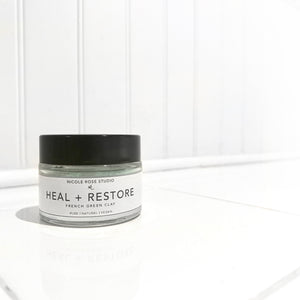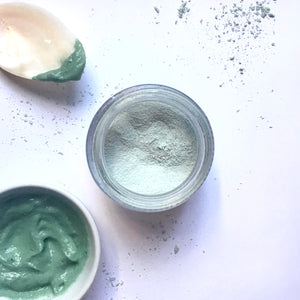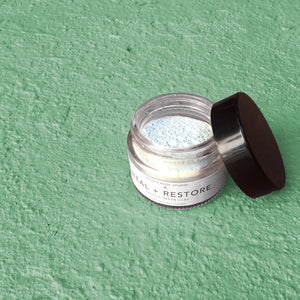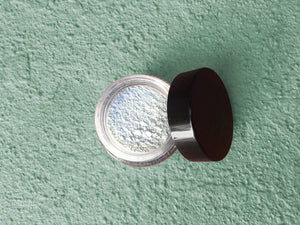Your Cart is Empty




Heal + Restore French Green Clay Mask
$20.00
French Green Clay absorbs and removes impurities from the skin, stimulating blood flow to create healthy and glowing skin. When prepared as a mask, the clay dries on the skin causing pores to tighten and the skin to feel firm, toned and refreshed. French Green Clay can be used in poultices to treat arthritis, sore muscles, and sprains; in ready-to-use pastes for application to cuts, bruises, insect bites, stings, and minor burns and mineral baths for stress relief. It is suitable for all skin types. Visit our blog to learn more about how to use French Green Clay for healing.
Clay acts like a sponge, attracting water and toxins not only to its negatively charged surface, but also inside the numerous canals in its crystalline structure. Heavy metals from fish, pesticides from fruits and vegetables, chemicals from water… We are all, you, me and the rest of the world, concerned by what is now called “body burden”: the chemical pollution in our bodies.
Clay is a natural healer and acts softly but deeply on the body. Because Clay is a powerful natural medicine, gently start your clay detox cure with Clay Water. Clay removes chemicals, toxins and pollutants from your body and traps them.
Application: French Green Clay can be used in detoxifying body wraps, soap making, face masks, mineral based or cream based cleansers, face or body scrubs, cosmetics and facial powders.
Appearance: Light green colored powder.
Size: 2 oz | 60 g glass jar
Origin: France
What is it exactly? French Green Clay comes from the sedimentation of Silico-aluminum, its coloring the result of the oxides contained in these rocks. Its unique composition includes Iron, Silica, Aluminum, Magnesium, Calcium, Titanium, Sodium and Potassium. French Green Clay is prepared for the commercial market by a process of sun-drying and crushing. After the clay has been mined, it is spread in the sun to remove excess water. It is then ground by large hydraulic crushers and micronized, or finely pulverized. The last stage in the process is a final period of sun-drying to remove the last traces of water.
RECIPES
Simple Face Mask Recipe: Combine 1 tbsp of clays to 2 tbsp of water to form a paste and apply to the skin. Leave for about 10 minutes and wash off with warm water. Floral water or aloe vera gel juice can be substituted for water for additional benefits.
Poultice Recipe: Add 3 tbsp of clay to enough water to form a thick paste. Add a few drops of essential oils if desired and apply the paste in a layer about 1/4-in thick to a piece of gauze. The poultice is applied to the injured area with the gauze uppermost and held in place with adhesive tape. It can be left in place as long as two hours, but the clay should not be allowed to dry. Poultices should not be reused but discarded after use.
Disclaimer: Caution should be exercised as clays may stain fabric.








